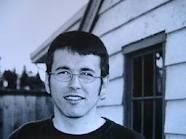Coop média de Montréal
Journalisme indépendant
Montréal
Film screening in solidarity with Basque political prisoner
IVAN APAOLAZA SANCHO TO BE TRIED ON TORTURE EVIDENCE

7:00pm
Thursday October 13 2011
» More information
On 18 October 2008, Ivan Apaolaza Sancho was deported from Canada by special charter flight, manacled hand and foot, and handed over to authorities in Spain. The deportation was a bitter ending to a fifteen month campaign in which the Basque man was imprisoned in Montreal, denied the right to apply for refugee status, and eventually deported - all on the basis of information that a Canadian tribunal recognized was obtained under torture. His trial will take place in Madrid on october 17th and 18th 2011, a canadian delegation who supported him agaisnt his deprtation will get there.
Come out to an evening of films on to learn about the Basque struggle and Canadian complicity in Spanish political repression.
:::UPDATE: IVAN FACING THIRTY YEARS ON INFORMATION OBTAINED OR DERIVED FROM TORTURE:::
On 18 October 2008, Ivan Apaolaza Sancho was deported from Canada by special charter flight, manacled hand and foot, and handed over to authorities in Spain. The deportation was a bitter ending to a fifteen month campaign in which the Basque man was imprisoned in Montreal, denied the right to apply for refugee status, and eventually deported - all on the basis of information that a Canadian tribunal recognized was obtained under torture.
Under Spanish law, people charged with crimes considered terrorist can spend up to four years in pre-trial detention. Ivan has now spent three long years in a number of detention centres in Spain, all far from his home-town, under the Spanish state's dispersal policy for Basque political prisoners. UN Special Rapporteur Martin Scheinin found that this practice of dispersal "constitutes a risk and an economic burden for visits by family members, as well as a practical obstacle for the preparation of the defence in cases where pretrial inmates are incarcerated long distances away from their lawyers" (Mission to Spain, A/HRC/10/3/Add.2, 16 December 2008).
Ivan's trial, under the Audiencia Nacionale - a specialized anti-terrorist court - is finally due to start on 17 October, three years after his deportation from Canada. Ivan will be tried under anti-terrorism measures of the Spanish criminal code, whose broad definitions make burning an ATM an act of "urban terrorism", criminalize lawyers and journalists for "collaboration" and "glorification of terrorism", and punish membership in a "terrorist organization" while failing to define the term. Under these sweeping provisions and Spain's much criticized inquisitorial system, Ivan will have to prove his innocence and will have two days to do so.
If convicted, Ivan faces thirty years in prison. Thirty years of prison for Basque political prisoners means thirty years of uncertainty, due to the regimes of exception that are applied in these cases. According to Human Rights Watch (Setting an example? Counter-terrorism measures in Spain, www.hrw.org/reports/2005/spain0105), Spain's practice of dispersing Basque political prisoners is considered by human rights groups to be an additional punishment and is applied arbitrarily, without legal foundation. Similarly, policies of arbitrarily extending sentences and refusing parole create a punishing atmosphere of uncertainty for Basque prisoners.
About the poster
The site for the Montreal local of The Media Co-op has been archived and will no longer be updated. Please visit the main Media Co-op website to learn more about the organization.


